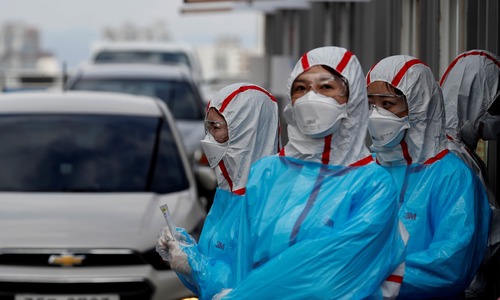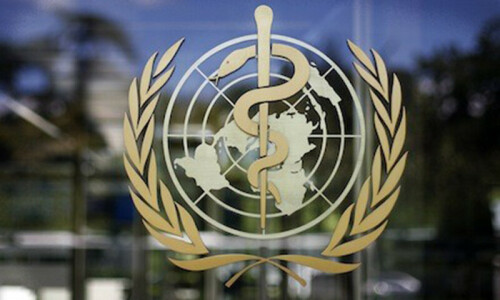As the world was still grappling with the spread — and containment — of Covid-19, reports from Japan last month claimed a woman there had contracted the virus for the second time after testing negative for the virus a week earlier and having recovered.
The news was troubling for scientists as it is only in very rare circumstances that people contract a virus for a second time as the human body develops immunity to it after the first occurrence. So, is the coronavirus disease any different?
Reports of the relapse in Japan were not the first as cases had earlier been reported in China. However, the authorities had later clarified that they were due to discrepancies in testing and the patients had not contracted the virus again.
Since then, scientists across the globe have been trying to figure out whether relapse was a possibility, especially considering some countries — United Kingdom and Netherlands most prominently — had chosen to take the ‘herd immunity’ route, which relies on letting a large part of population contract the virus with the expectation that it would strengthen immunity against it.
While experts are struggling to figure out what happened in the case of the Japanese woman, a study in China has revealed that re-exposure to the virus among monkeys who recovered from it once did not result in them contracting the virus for the second time. The study, however, needs to be taken with a pinch of salt as research on the virus is still ongoing and conclusions are yet to be reached.
Meanwhile, experts are predicting that it is unlikely that a person who has recovered will contract the virus again.
“It is very likely, based on other viral infections, that yes, once a person has had the infection they will generally be immune and won’t get it again. There will always be the odd exception, but that is certainly a reasonable expectation,” Prof Jon Cohen, emeritus professor of infectious diseases at Brighton and Sussex Medical School, told The Guardian.
“For the most part, the feeling is once you’ve had a specific coronavirus, you are immune. We don’t have enough data to say that with this coronavirus, but it is likely,” Dr Stephen Gluckman, an infectious diseases physician at Penn Medicine told The Huffington Post.
These views are in line with the expectations of United States’ Centres for Disease Control and Prevention (CDC) which said that the virus was dangerous right now because “there’s essentially no immunity against this virus in the population because it’s a new virus”.
In short, experts are unsure whether the possibilities of reinfections exist among Covid-19 patients but the majority opinion is that people will eventually develop immunity and it is only in rare cases that the virus will attack again.
The recovery process
While little else is known about the virus, what has been established so far after more than 330,000 cases across the globe, is that it affects different people differently. Some face minor, or no symptoms at all, while others are severely impacted with lung infections and respiratory problems.
In many cases, symptoms also take some time in appearing after a person has contracted the virus. A study on Chinese patients showed an inverse relationship between time spent after contracting Covid-19 and lung function, meaning that once it starts affecting the lungs, it continues to cause greater damage until it goes away.
Scientists are also not exactly sure about how much time it takes for a patient to recover but the consensus is that it takes up to 14 days after symptoms begin showing for a patient to recover. In most cases — around 80 per cent — patients recover after showing symptoms such as fever and not much damage to overall body functions takes place.
These are categorised by the World Health Organisation (WHO) as mild cases and in these cases.
Data from China is now showing that the recovery rates and processes for men and women differ although they are equally likely to contract the disease.
Chinese Centre for Disease Control and Prevention data shows that while 2.8 pc of men who contracted the virus died, only 1.7pc of women did, CNN reported.
Meanwhile, in South Korea where 61 percent of confirmed infections have been in women, 54 percent of fatalities were made up of men, according to The Washington Post.
Scientists say there could be a number of factors contributing to why men may be more vulnerable, including women having a stronger immune response to viral infections, particularly of the respiratory tract.
The group most at risk are the elderly, around a 15pc of whom died because of the virus, followed by those who had cardiovascular disease, diabetes or respiratory diseases.
While most of the mild cases require no treatment, severe cases require supplemental oxygen and for critical patients intensive care and ventilators may be required.
Mild cases take 7-12 for full recovery, but it could take upwards of two weeks for critical patients to fully recover. It is only after two tests taken 24-hours apart that doctors can be confident of a full recovery and discharge patients, European Centre for Disease Prevention and Control says.
While over 96pc of those who were tested positive for Covid-19 in China recovered, scientists are now reporting that some patients could suffer from reduced lung function even after “full” recovery. Dr Owen Tsang Tak-yin, medical director of the Hong Kong’s Hospital Authority’s Infectious Disease Centre, said two to three of the 12 recover patients were “unable to do things as they had in the past," South China Morning Post reported.
“Some patients might have around a drop of 20 to 30 per cent in lung function,” Dr Tak-yin added.
Read an account of Chris Gough, an anaesthetist from Oxord, United Kingdom who made a full recovery in 10 days:
Research by Ebad Pasha
















































